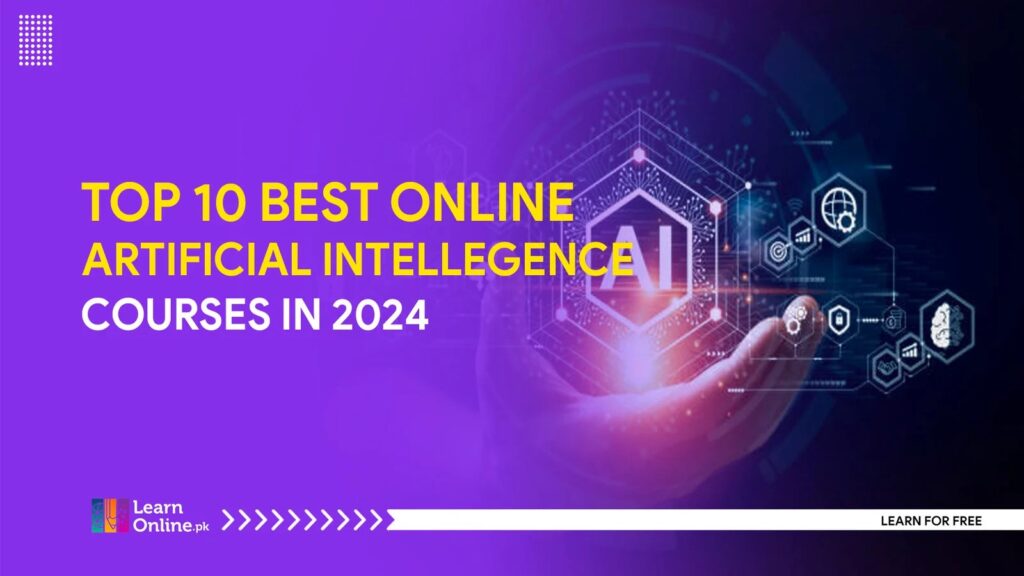Since the invention of computers or machines, their capability to perform various tasks has grown exponentially. Humans have developed the power of computer systems in terms of their diverse working domains, their increasing speed, and their reduced size concerning time. A branch of Computer Science called Artificial Intelligence pursues creating computers or machines as intelligent as human beings. Artificial Intelligence is a way of making a computer, a computer-controlled robot, or software think intelligently, in a similar manner the intelligent humans think. AI is accomplished by studying how the human brain thinks, and how humans learn, decide, and work while trying to solve a problem, and then using the outcomes of this study as a basis for developing intelligent software and systems. In this article, readers can take a deep dive into the artificial intelligence courses online and their use in modern technology.
History of AI
This range of time was when the interest in AI came to a head. Alan Turing published his work “Computer Machinery and Intelligence” which eventually became The Turing Test, which experts used to measure computer intelligence. The term “artificial intelligence” was coined and came into popular use.
Dates of note:
- 1950: Alan Turing published “Computer Machinery and Intelligence” which proposed a test of machine intelligence called The Imitation Game.
- 1952: A computer scientist named Arthur Samuel developed a program to play checkers, which was the first to ever learn the game independently.
- 1955: A workshop at Dartmouth on “artificial intelligence” which is the first use of the word, and how it came into popular usage.
The time between when the phrase “artificial intelligence” was created, and the 1980s was a period of both rapid growth and struggle for AI research. The late 1950s through the 1960s was a time of creation. From programming languages that are still in use to this day to books and films that explore the idea of robots, AI became a mainstream idea quickly.
The 1970s showed similar improvements, such as the first anthropomorphic robot being built in Japan, to the first example of an autonomous vehicle being built by an engineering grad student. However, it was also a time of struggle for AI research, as the U.S. government showed little interest in continuing to fund AI research.
Basic goals of AI
- To Create Expert Systems
The systems that exhibit intelligent behavior, learn, demonstrate, explain, and advise their users.
- To Implement Human Intelligence in Machines
Creating systems that understand, think, learn, and behave like humans.
Applications of AI
- Gaming
Artificial intelligence courses online can play a crucial role in strategic games such as chess, poker, tic-tac-toe, etc., where machines can think of a large number of possible positions based on heuristic knowledge.
- Natural Language Processing
It is possible to interact with a computer that understands the natural language spoken by humans.
- Expert Systems
Some applications integrate machines, software, and special information to impart reasoning and advising. They provide explanations and advice to the users.
- Vision Systems
These systems understand, interpret, and comprehend visual input on the computer. For example, a spying aeroplane takes photographs which are used to figure out spatial information or map of the areas. Or Doctors use a clinical expert system to diagnose the patient. Also, Police use computer software that can recognize the faces of criminals with the stored portraits made by forensic artists.
- Speech Recognition
With AI courses, learners can do some intelligent systems that are capable of hearing and comprehending the language in terms of sentences and their meanings while a human talks to it. It can handle different accents, slang words, noise in the background, changes in human noise due to cold, etc.
- Handwriting Recognition
The handwriting recognition software reads the text written on paper with a pen or on a screen by a stylus. It can recognize the shapes of the letters and convert them into editable text.
- Intelligent Robots
Robots are able to perform the tasks given by humans. They have sensors to detect physical data from the real world such as light, heat, temperature, movement, sound, bump, and pressure. They have efficient processors, multiple sensors, and huge memory, to exhibit intelligence. In addition, they are capable of learning from their mistakes and they can adapt to the new environment.
In Summary
AI has touched practically every industry, and an increasing number of organizations are joining the race to employ AI-related skills in some form or other which makes it an excellent time for career aspirants and opportunists to upskill in the technologies that drive the future of tech. Artificial intelligence courses online program gives training on the skills required for a successful career in AI.
